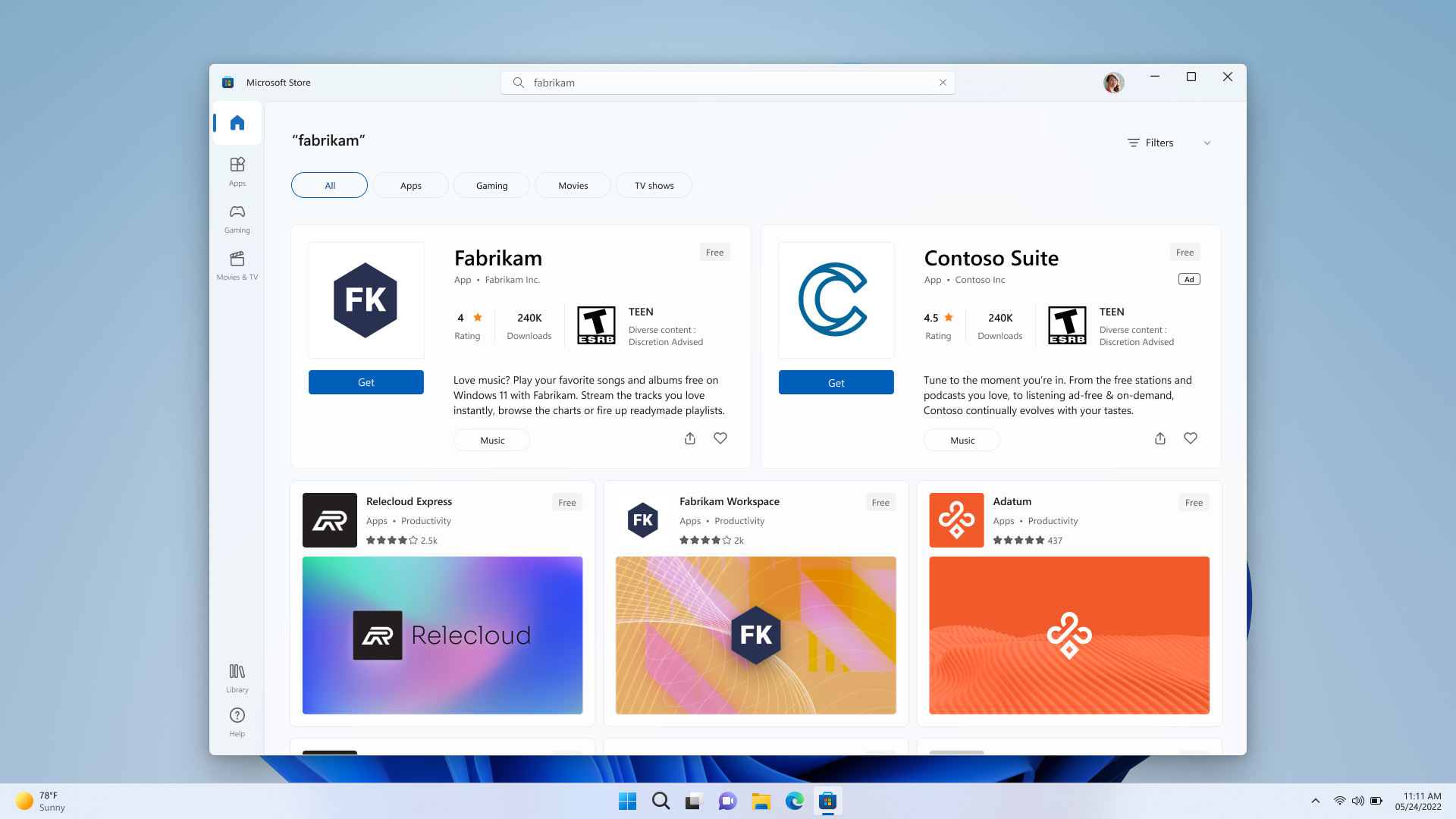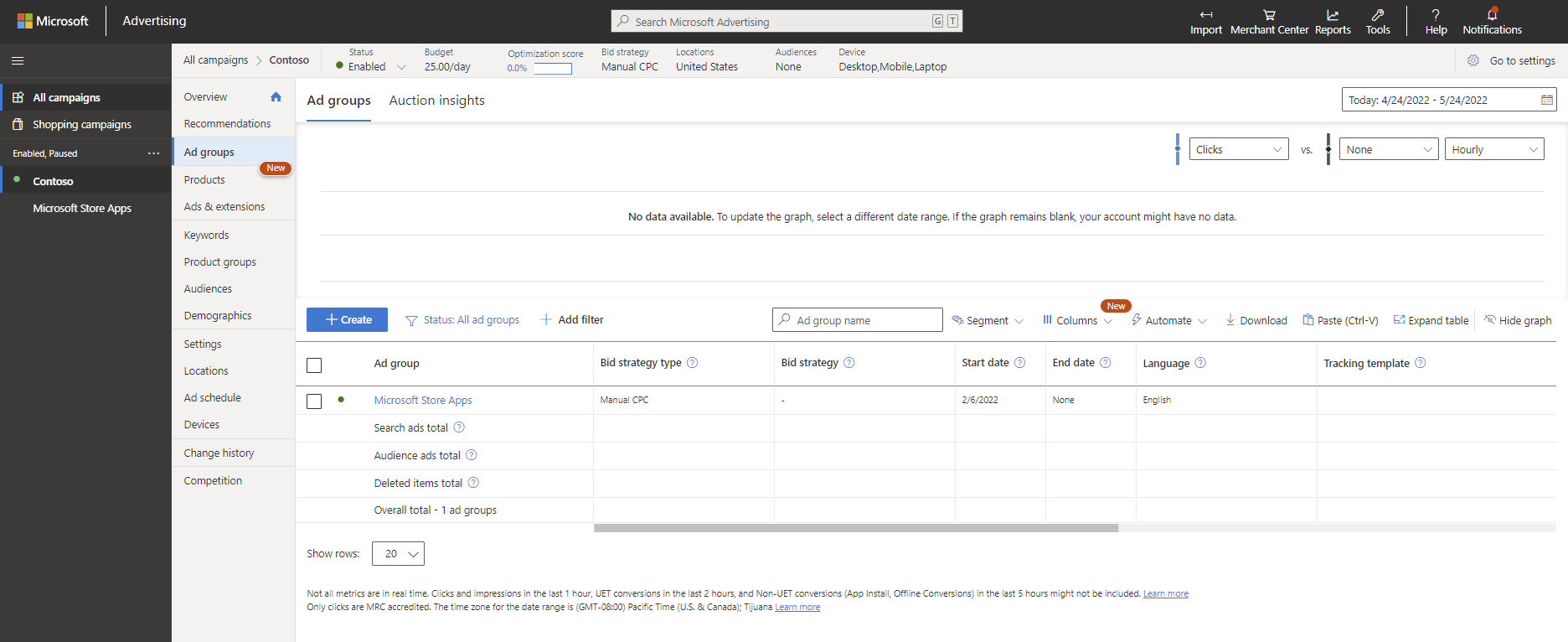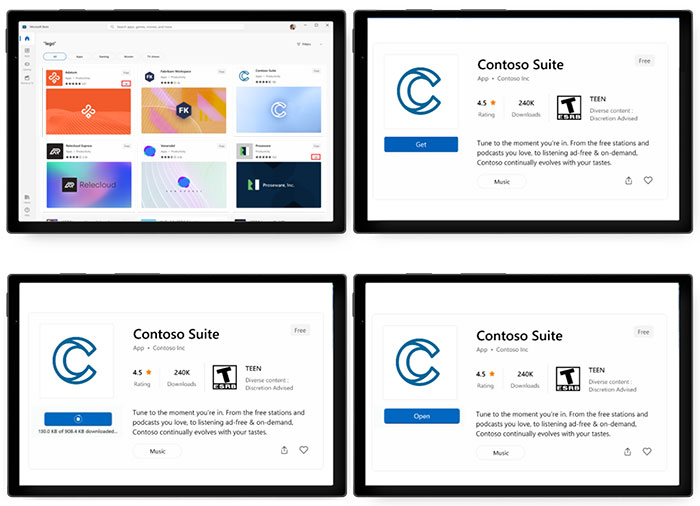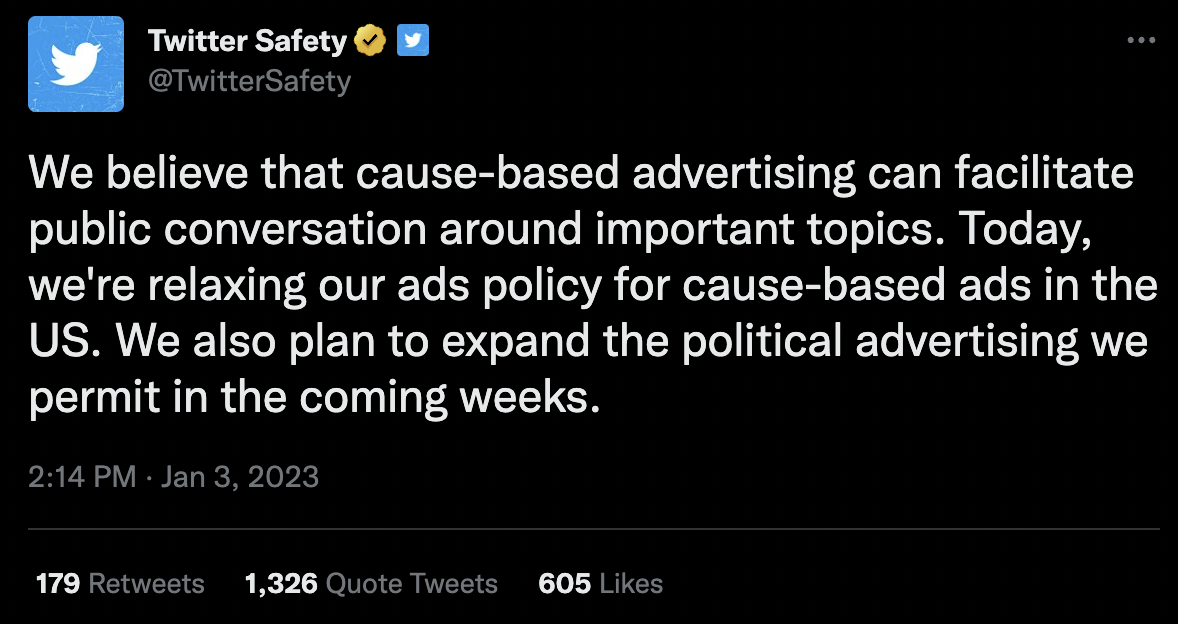SEO
Free SEO Analysis
SEO Services
Content Marketing Services
Local SEO
Link Building Services
Specialized SEO Services
PPC
REPUTATION MANAGEMENT
Free Reputation Management Analysis
Reputation Management Services
Review Management Services
Specialized Reputation Management Services
CEO Reputation Management
Brand Enhancement
Business and Directory Listings
Comprehensive Reputation Management Audit
SOCIAL MEDIA
Free Social Media Analysis
Specialized Social Services
WEB DEVELOPMENT
Free Website Analysis
Web Design Services
Mobile Development Services
Website Maintenance Services
Specialized Development Services
MARKETING AUTOMATION
Free Marketing Automation Analysis
Specialized Marketing Automation Services
Comprehensive Marketing Automation
INDUSTRIES
ABOUT DMA
Digital Marketing
Digital Marketing News 01/10/2023 – 01/16/2023
Request a quote
Its Fast, Easy & Free
Executive Summary
This week on the latest digital marketing updates: Microsoft Store Ads launch, Google removes headline character limit, Shopify introduces Commerce Components for enterprise retailers, Twitter loosens restrictions on cause-based ads and political ads, and Meta faces fines for EU privacy law violations.
Here are the latest news, trends, and updates in detail:
Promote Desktop Apps on Windows Devices with Microsoft Store Ads
This new ad format from Microsoft can improve your app’s discoverability and engagement, as well as let you review performance reports and optimize campaigns.
Microsoft recently redesigned Microsoft Store, the Windows app store, to look and feel more like a mobile app store. Along with this change, they also launched Microsoft Store Ads, where you can promote your desktop app to customers on Windows 10 and Windows 11 devices by creating ads on the Microsoft Advertising platform. Your ad will be published on the Microsoft Store, and customers can download your app to their PC.

Microsoft Store Ads bring in desktop traffic from users that have a high intent to download a desktop app. Microsoft says:
“Instead of limiting your target audience and incentivizing app downloads on mobile alone, with Microsoft Store Ads, you’re now expanding your thinking and casting a wider net. As one of the first to implement this strategy, Microsoft Advertising’s vision is for Microsoft Store Ads to empower advertisers to do more, boosting app acquisition and engagement strategy across screens beyond just mobile apps.”
To create Microsoft Store Ads, launch the Microsoft Advertising campaign dashboard to buy ad space. Your ad may appear in the store search results page, improving discoverability.

Microsoft Store Ads also give you a view into the holistic customer journey. After creating your ad, you can review performance reports and optimize campaigns for increased user engagement because you’ll see customer search results, the “Get” or “Price” button page, the Download Start page, and the “Play” or “Open” page.

Microsoft Store Ads is built for apps already on Windows, and for desktop apps that are yet to be launched. Because Microsoft just announced this new ad format, the costs per click (CPC) are very competitive, which can bring your overall cost per action (CPA) down.
As Microsoft reminds advertisers, remember to test your ad strategy to discover your ideal return on investment (ROI), because each category dynamic varies. And with Microsoft’s automatically embedded tracking tag, Universal Event Tracking (UET), you’ll be able to save time — just create your ad and post.
To get started with Microsoft Store Ads, take any of the following steps:
Contact your Microsoft Advertising account manager or Microsoft Store representative.
Reach out to the Microsoft Advertising Sales Team to set up a new account.
Connect with the Microsoft Advertising Support Team if you are a non-managed account customer.
If your app or game is not in the Microsoft Store yet, begin by publishing your Windows app.
Google Removes The Character Limit for Article Headlines
Instead, Google encourages publishers to come up with concise titles.
Google updated the Article structured data documentation to remove the 110-character limit for article titles published on the search engine. Previously, Google required that the title of an article should not exceed 110 characters. However, their updated documentation now reads:
“The title of the article. Consider using a concise title, as long titles may be truncated on some devices.”
Google has not provided any particular reason for the headline property update. While there’s no hard character limit anymore, Google still recommends using concise titles. Not only will this help you avoid truncation, but it will also help users immediately identify what your content is about.
If your headline goes over 110 characters, you will no longer receive errors about it being too long. However, always consider how the headline will appear on different devices, particularly where people are consuming your content.
Shopify Introduces Commerce Components for Retailers
With Commerce Components, retailers can choose which elements of Shopify they want to integrate with their own systems.
During the last (almost) two decades, Shopify has been consistently building, optimizing, and scaling their infrastructure, while giving businesses full control of their brand identity, customer relationships, and data. Now they’re opening their infrastructure to power retailers all over the world with Commerce Components by Shopify (CCS), the modern, composable stack for enterprise retail. Through this, retailers can take components of Shopify to integrate with their own systems.
This is the first time that Shopify is giving enterprise retailers access to their foundational component infrastructure, like their checkout, which they claim converts 72% better than a typical checkout and even 91% better on mobile, plus flexible APIs to build dynamic customer experiences that integrate seamlessly with a retailer’s preferred back office services.
CCS features an all-new back-office management designed specifically for enterprise:
Flexible APIs
Now with no rate limits, Shopify’s flexible APIs allow brands to integrate their existing services with Shopify’s modular components and build customer experiences for any device. Enterprise retailers can take the components they need and leave what they don’t, and developers are free to build with any front-end framework they choose.
High-Converting Checkout
Shopify’s checkout has 99.99% uptime, processing up to 40,000 checkouts per minute per store, and unlocks over 100 million existing Shop Pay customers who have opted in for Shopify’s one-click checkout.
Globally-Scaled Infrastructure
Shopify has over 275 network edge points of presence, which enables storefronts to work efficiently no matter where customers are in the world.
Dedicated Support Team
Shopify deploys a dedicated account team with solutions architects, priority 24/7/365 specialized support, and a network of seasoned agency partners and system integrators like Deloitte, EY, and KPMG.
If you’re interested in trying out Commerce Components by Shopify, you can view all the Shopify components for enterprise retailers here. You can also learn more about CCS here. Note that the pricing for Commerce Components by Shopify is designed for enterprise and it’s based on usage to provide predictability.
Twitter Relaxes Policy for Cause-Based Ads in the United States
They also plan to expand the political advertising allowed on the platform in the coming weeks.
One of the first announcements made by Twitter Safety this year is the news that they’re loosening the restrictions they previously placed on cause-based ads (e.g. ads related to climate change) and political advertising.


According to their tweet, Twitter is relaxing their ads policy for cause-based ads in the United States because they believe that “cause-based advertising can facilitate public conversation around important topics.”
Twitter currently restricts the promotion of and requires advertiser certification for ads that educate, raise awareness, and/or call for people to take action in connection with civic engagement, economic growth, environmental stewardship, or social equity causes. In their policy page, they said that they made this decision based on two beliefs:
Advertising should not be used to drive political, judicial, legislative, or regulatory outcomes; however, cause-based advertising can facilitate public conversation around important topics.
Advertising that uses micro-targeting presents entirely new challenges to civic discourse that are not yet fully understood.
Twitter’s cause-based advertising policy page also outlines additional restrictions for this ad type. However, after their recent announcement, advertisers whose cause-based ads target only within the United States are now exempt from the restrictions. Government and supranational agencies and entities are also not subject to geo-targeting restrictions as long as they comply with all other restrictions.
Twitter Safety also revealed that in the coming weeks, they’re planning to expand the political advertising they permit within the platform. In 2019, Twitter famously banned political ads. According to their political content policy, they made this decision based on the belief that “political message reach should be earned, not bought.”

But after the recent announcement, advertisers can once again expect to run political ads on Twitter.
Moving forward, Twitter plans to align their advertising policy with other media outlets, and reveal more details about their ad policy changes.
Meta Faces $414 Million Fine for EU Privacy Law Violations
The Irish Data Protection Commission found that Meta unlawfully led users to consent to having their personal data be used for targeted ads.
In a report from The New York Times, Facebook and Instagram parent company Meta was fined 390 million euros ($414 million) by Ireland’s Data Protection Commission (DPC) for violating privacy laws in the European Union (EU).
This came after regulators found that Meta uses language in their terms of service agreement that forces users to agree on having their data used for personalized ads, or else they won’t be able to use Meta's social media services altogether. The DPC also says that the language used in Meta’s terms of service agreement does not clearly inform users of how their data is being used.
As a result, Meta has to pay around $223 million for Facebook’s unlawful privacy policies and roughly $191 million for Instagram. The decision comes after Meta was accused of violating the General Data Protection Regulation (GDPR) back in 2018. The GDPR acts as a safeguard for EU citizens’ personal data.
In a released statement, Meta expressed that they strongly believe their approach respects the GDPR, and they intend to appeal “both the substance of the rulings and the fines.” They asserted:
“Facebook and Instagram are inherently personalized, and we believe that providing each user with their own unique experience – including the ads they see – is a necessary and essential part of that service. To date, we have relied on a legal basis called ‘Contractual Necessity’ to show people behavioral advertisements based on their activities on our platforms, subject to their safety and privacy settings.”
Despite the Irish DPC’s ruling, Meta assured advertisers that the decisions do not prevent personalized advertising on their platform. It’s also worth noting that DPC did not provide specific instructions on how Meta can comply with the GDPR, and Meta does not have to make changes to their terms of service agreement until a final decision is reached in court.
What you can do next:
If you’re an app developer or advertiser, consider promoting your app using Microsoft Store Ads. They’re easy to launch and don't require a huge budget, plus they can potentially increase your discoverability and app engagement.
Enterprise retailers looking to scale their brands and improve conversion rates can benefit from Commerce Components by Shopify. It provides access to foundational eCommerce infrastructure while still giving you the freedom to run your storefront the way you want.
Advertisers who run cause-based ads that target only within the US can now reach more users on the platform. However, it’s important to stand out from fraudulent accounts, so make sure that your account is properly verified before you run your ads.
Elevate Your Marketing
Will Google’s 2023 Algorithm Update Impact Your Website? Guide To Keep Your Website Up To Date
Learn the seven ranking factors of Google Algorithm and get useful tips on how you can keep your website updated. Read more >
The Next Big Thing in SEO: Expectation vs Reality
Find out the SEO trends that can shape your strategy this 2023. Read more >
Our Sales team